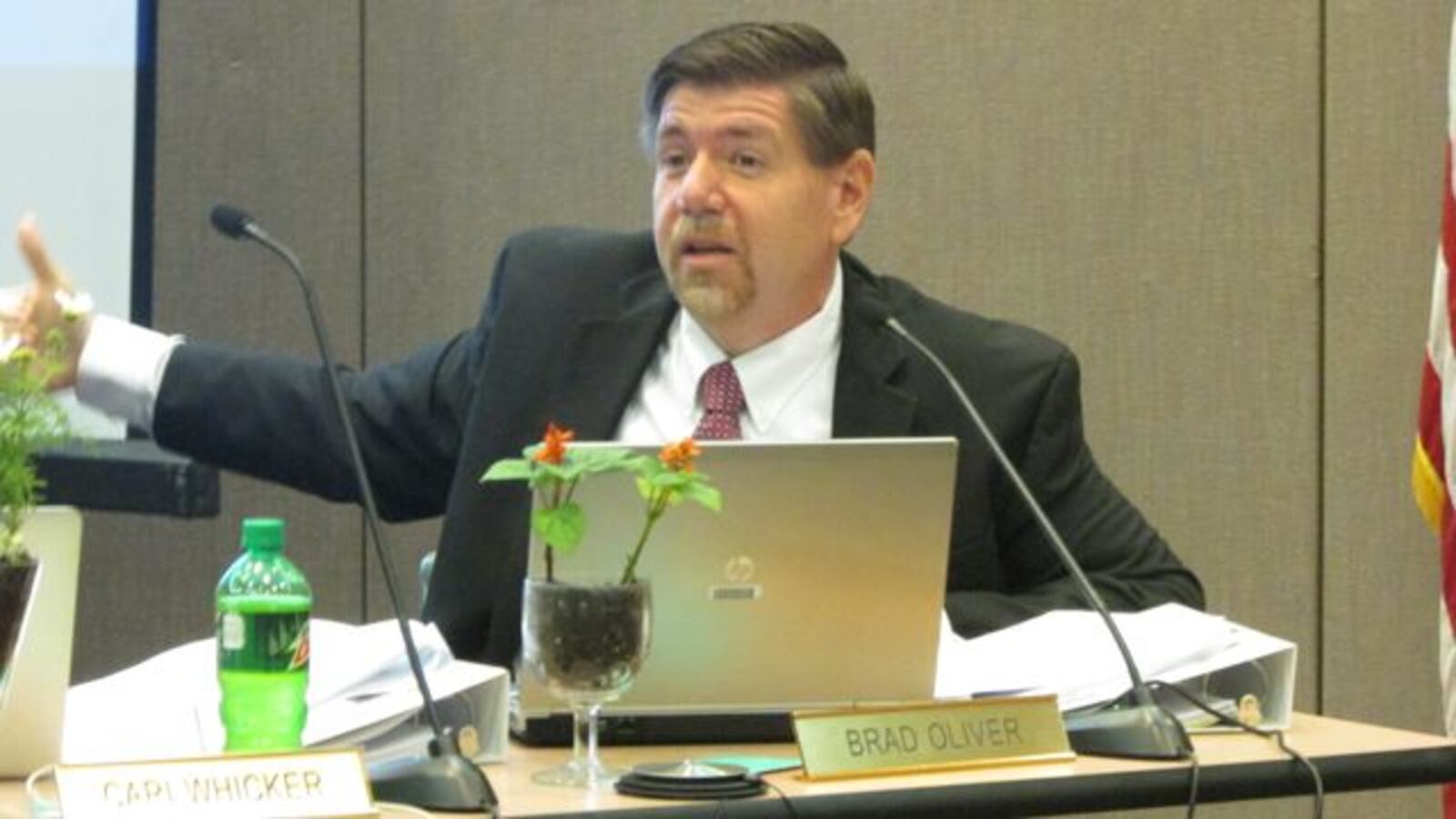A proposal to again change the rules for how the Indiana State Board of Education conducts its meetings has brought renewed charges from state Superintendent Glenda Ritz’s supporters that it is a thinly veiled effort to limit her power.
“The board will propose dramatic new board procedures through approving a resolution that will form a one-time, ad hoc committee that will approve the new measures intended to cut into the superintendent’s traditional role as chair,” states a July 4 post on the Indiana State Teachers Association blog.
ISTA is calling for teachers to contact state board members and attend Wednesday’s state board meeting to protest the move.
But state board member Brad Oliver, who has clashed with Ritz over some of her decisions to overrule motions by her fellow board members, said the proposal does not make any changes to Ritz’s legal authority as state superintendent.
“It’s very clear the state board is a policy-setting body,” Oliver said. “She is the chair, but there is nothing that stipulates any special powers for the chair to control the agenda or interpret how the meeting unfolds.”
Ritz’s office did not respond to requests for comment.
A resolution on the board’s agenda for Wednesday would create a subcommittee to consider a proposal that would shift authority for determining when and where the board meets from Ritz to the board’s staff and allow board members to appeal any ruling Ritz makes during the meeting.
Two lawyers at the June 23 meeting disagreed over whether Ritz’s decision to overrule a motion Oliver offered was proper, he noted. That means the board’s rules need to be more clear, he said.
“There cannot be any lack of clarity,” Oliver said. “More importantly, we have reached the point that it is time to clarify the role of the chair is to facilitate meetings. The chair should not be able to block board members from being able to participate.”
Ritz and the board have been at odds for almost a year over who has more authority to guide state education policy and specifically on the question of how much discretion Ritz should have to decide what is on the board’s agenda, who can speak during board meetings and what motions are allowed.
Last November, tension over those questions reached its peak when Ritz abruptly adjourned a state board meeting after board members objected to one of her rulings. That led to a meeting with an outside facilitator and a handful of changes to the board’s rules meant to avoid such conflicts in the future.
Ritz, who chairs the board by law, is the only Democrat holding statewide office. The other 10 board members includes Republicans and Democrats but all have been appointed by Republican governors. As chair, Ritz is empowered to run the board’s meetings but her critics say she has used that parliamentary authority at times to stymie the will of the board.
Her defenders, however, argue Ritz has been under siege from a covert effort by Gov. Mike Pence to diminish her authority and take control of education department functions that traditionally have fallen under the auspices of the elected state superintendent.
Last summer, Pence used new authority granted him by the legislature in 2013 to establish the Center for Education and Career Innovation. Among its functions was to employ a staff for the state board using funds that previously had been overseen by the education department.
Ritz has charged that CECI sometimes acts as a shadow education department. Policy disagreements have led, for instance, to lawyers for the department and for CECI standing at the same podium giving the state board conflicting advice on questions of what state law dictates the board must do in some circumstances.
That happened again at the last board meeting, as Ritz refused to allow a vote on a resolution Oliver offered that addressed Indiana’s status with the U.S. Department of Education.
Oliver and others complained that they felt Ritz’s team failed to provide information to the board in a timely manner about her answer to a request from federal officials for Indiana to explain how the state would keep promises it made in 2012 in return for a waiver from sanctions under the federal No Child Left Behind law.
The resolution, Oliver said, was intended to clarify that the state was committed to maintaining A to F school grades, which he said was required by state law, and wasn’t signing on in advance to any changes Ritz might propose to state tests. But Ritz’s supporters saw the resolution as simply an attack on her effort to reassure federal officials that the state would not violate the terms of its waiver.
ISTA argued the proposal for Wednesday is just the latest step in an effort to limit Ritz’s power.
“This new resolution brought forth by the governor-appointed State Board of Education members is the latest in this fixation over gaining singular power at the expense of the authority of the superintendent of public instruction,” the ISTA blog post states.
But to Oliver, new procedures are needed if the board is going to get its work done.
“You cannot be a policy setting body when members of the board can’t put items on the agenda to deliberate,” he said. “Any time you have board with a chair, for example, there has to be a way to appeal the ruling of the chair. The notion that you can’t appeal a ruling is unheard of.”


